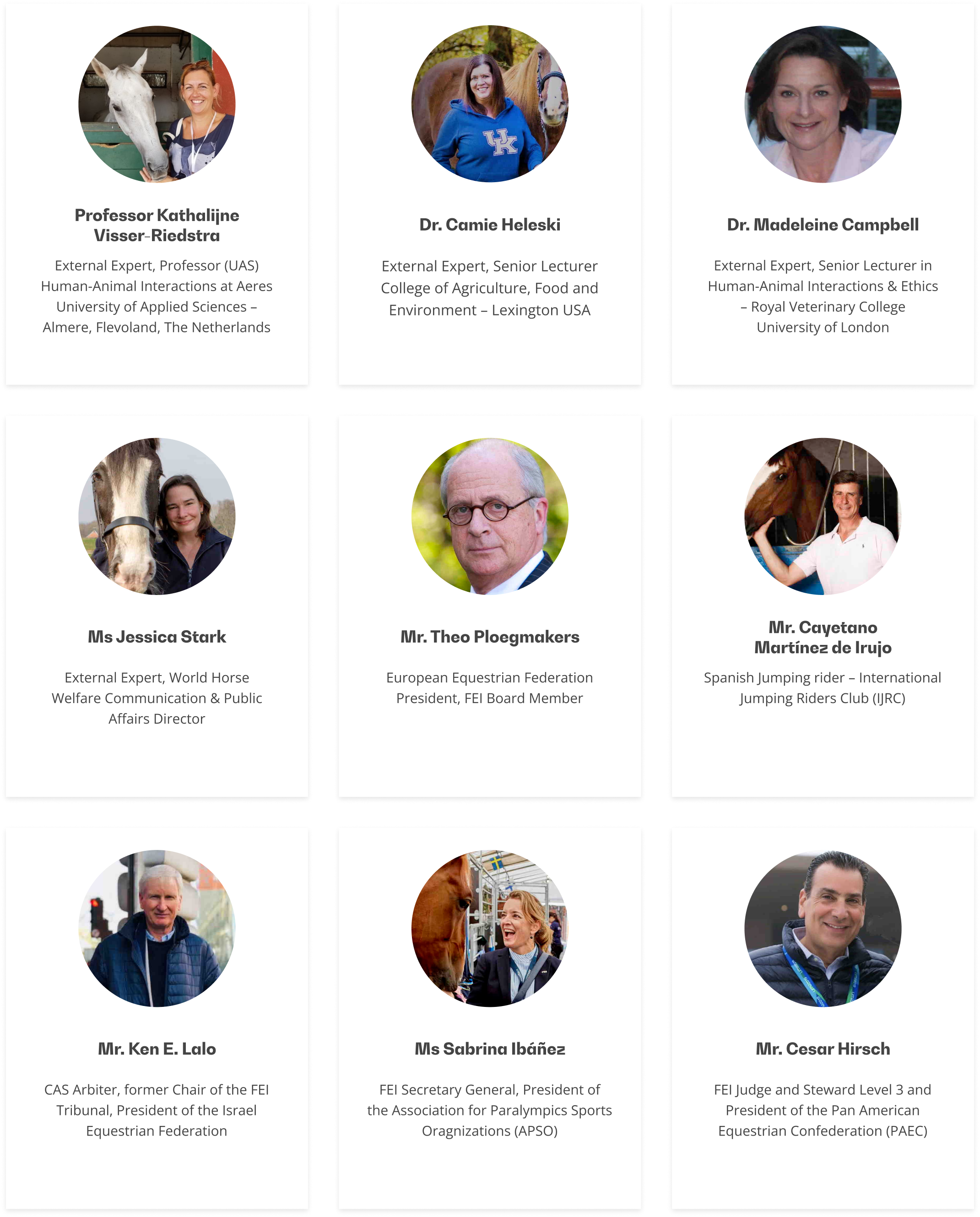Social License to Operate and the Equine Ethics & Wellbeing Commission


Annual Report 2022


As societal attitudes are changing, equestrian’s Social License to Operate (SLO) – the term given to society’s acceptance of the practice of equestrian sport and all its related activities – has come under increasing scrutiny.
Equestrian sport involves the use of an animal that the public perceives as particularly vulnerable. And while the FEI has comprehensive systems and mechanisms in place to protect the welfare of the horse, in an ever-changing society, perceptions shift and norms evolve at an increasingly fast pace.
As a result, the FEI has had to regularly address concerns and criticisms from society, as well as from within equestrian circles, about the treatment of horses in equestrian sport.
Recognising the need for change, and its role in driving change, the FEI instigated the creation of the Equine Ethics and Wellbeing Commission in June 2022, to independently consider issues of public and equestrian concern that may affect ongoing social acceptance of the involvement of horses in sport.
Specifically, the Commission was tasked with providing independent advice and recommendations to the FEI to ensure equine welfare is safeguarded through ethical, evidence-based policy and practices, relating to training, management, performance and competition practices, and to improve the sport’s Social License to Operate.
As FEI President Ingmar De Vos said, “Equestrian sport and the FEI’s activities are more than ever under public scrutiny and through the Commission we want to embrace that scrutiny to drive change and shine the spotlight on our number one stakeholder – The horse.
“As an organisation, the FEI needs to better understand what we can continue to do, and what needs to change in order to maintain the trust and confidence of the public. The time has come for us to focus not just on providing the best service to our community, but also on what we must do to be the best for equestrian sport.
“This is our duty as the governing body responsible for equestrian sport, and this is why we have set up this important and independent Commission to allow us to move forward with a course of action that will strengthen equestrian’s place in society.”

First interim report presented by the Chair at the FEI General Assembly in Cape Town (RSA) from 9 to 13 November 2022.

Second draft report to be presented during the FEI Sports Forum in 2023.

Final report to be presented by the Chair to the FEI General Assembly in Mexico City (MEX).
The 10 person Commission is chaired by Professor Dr. Natalie Waran (NZL), an internationally respected equine behaviour and welfare expert who is Professor of One Welfare and Executive Dean at the Eastern Institute of Technology (Te Pūkenga) in New Zealand.
Five members of the Commission are external to the FEI, and five are FEI nominated representatives.
Following consultation with, and recommendations by respected equine welfare and veterinary organisations, invited external members were selected for their expertise in equine welfare, equitation science, ethics, education and public affairs.
The FEI nominated members were chosen for their considerable experience in their area of FEI responsibility, and to provide the athlete and official viewpoint.

The Commission met for the first time at the start of June 2022, and then twice a month through online meetings until the end of the year. A two-day ‘in person’ meeting was also held in Lausanne (SUI) in August 2022.
Global surveys in English, French & Spanish
Respondents from the equestrian community from 116 countries
Respondents from the general public across 14 countries
Some of the key points from these surveys were as follows:
During the EEWB Commission in-person meeting on 3 and 4 August 2022 at the FEI Headquarters in Lausanne (SUI), a number of Recommendations were discussed and agreed to be submitted to the FEI Board.
These Recommendations were initially defined by the EEWB Commission as “early Recommendations”, with the purpose of being implemented as speedily as possible by the FEI, ideally by the end of 2022.
The six EEWB Recommendations were as follows:
The six EEWB Commission Recommendations were submitted to the FEI Board on 17 August 2022, upon which the FEI Board agreed to share the first four recommendations with the FEI Technical Committees for their feedback.
After having received the feedback from the FEI Technical Committees a final report was submitted to the FEI Board on 4 October 2022.
The Equine Ethics and Wellbeing Commission delivered its interim report, with the initial results of its surveys to FEI delegates at the FEI General Assembly in Cape Town (RSA) on 12 November 2022.
Professor Dr Natalie Waran, Chair of the EEWB, told delegates:
“As the Commission, we will be blunt. We will be direct and we will tell you the truth. But in the end we will be here with you. There is change that needs to happen and we are here to develop a strategy, provide objective advice, make recommendations and then see how these recommendations can be put into operation.
“I am pleased FEI members recognise that the data from the surveys is extremely valuable to identify concerns as well as suggested courses of action to mitigate them. While it’s clear that change is needed, I am confident that the FEI, the National Federations and equestrians around the world are committed to the journey. The work of the Commission will provide the structure, set the direction and help with navigating the actions that can be taken, but it will be the ongoing leadership of the FEI and work at local level that will help ensure that equine welfare is fully prioritized – and seen to be so – and so help equestrianism maintain its social licence.”
Following the 2022 FEI General Assembly, the Commission continued to meet virtually and in-person. More information on the Commission can be found here.